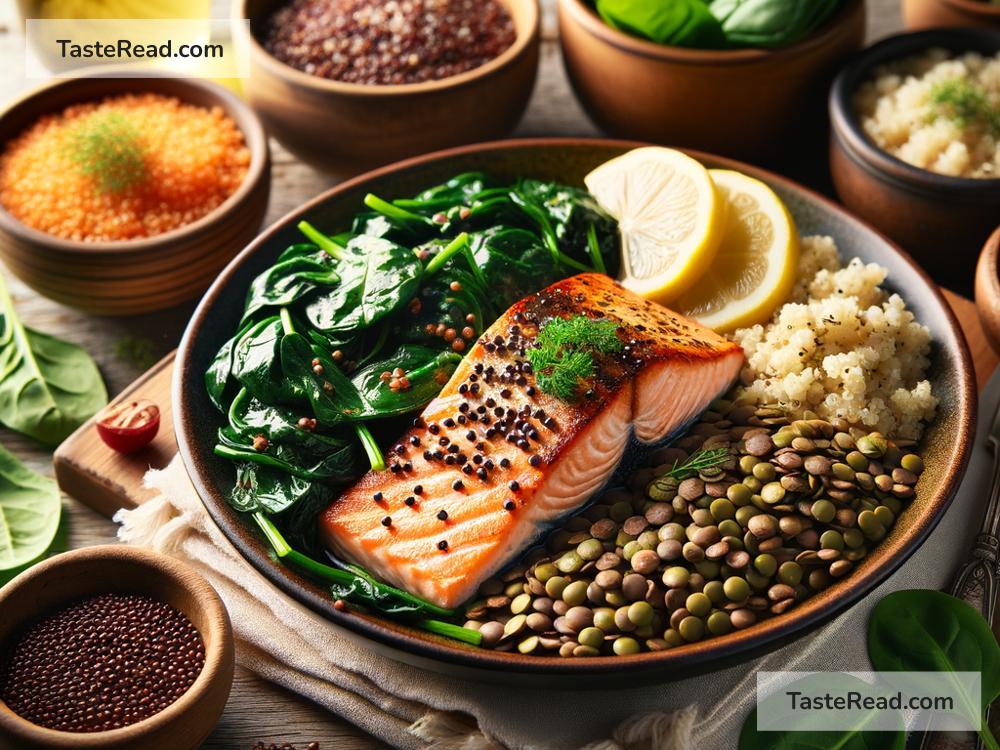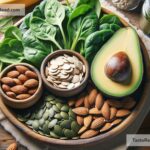The Importance of Iron in Nutrition
Iron is a vital nutrient our bodies need to stay strong and healthy. It’s a mineral that helps your body do important jobs, like making blood and delivering oxygen to every part of your body. Without enough iron, you may feel tired and weak. This article will explain why iron is essential, where to find it, and how to make sure you get enough in your diet.
What Is Iron and Why Is It Important?
Iron is a nutrient that plays a key role in keeping us alive. One of its biggest jobs is helping your body make hemoglobin, a protein in your red blood cells. Hemoglobin carries oxygen from your lungs and moves it throughout your body, allowing your muscles, brain, and other organs to work properly.
Iron is also part of myoglobin, a protein found in your muscles that stores oxygen for when you’re moving around or exercising. Additionally, iron supports your immune system, helping your body fight off illnesses and infections.
When you don’t get enough iron, your body struggles to make the red blood cells it needs. This can lead to a condition called iron-deficiency anemia. People with anemia often feel tired, get dizzy, have trouble concentrating, and may even get sick more often.
Why Do We Need Iron?
Iron is especially important for certain groups of people because their bodies demand more of it. For example:
-
Women and Girls: Women often need more iron than men, especially during their period. Blood loss means their bodies lose some of the iron, making it important to replenish it through food or supplements.
-
Pregnant Women: During pregnancy, women need extra iron to help support the growth of the baby and maintain their own health.
-
Babies and Young Children: Growing bodies require lots of nutrients, including iron, to develop properly.
-
Athletes: As athletes exercise, their bodies use up a lot of oxygen, which means their red blood cells need to work harder, requiring iron to keep energy levels up.
Signs of Low Iron
If you don’t get enough iron, you might notice some symptoms. Here are a few signs that your body could be running low:
- Feeling tired or weak
- Trouble focusing or thinking clearly
- Pale skin
- Shortness of breath or dizziness
- Frequent headaches
- Cold hands and feet
If you think you might have low iron levels, talk to your doctor. They can test your blood and suggest ways to increase your iron intake.
Where Can You Get Iron?
Iron comes from the food we eat. There are two types of iron found in food: heme iron and non-heme iron.
-
Heme Iron: This type of iron is found in animal-based foods and is easier for your body to absorb. You can find heme iron in meats like beef, chicken, turkey, and fish.
-
Non-Heme Iron: This type of iron is found in plant-based foods but is harder for your body to absorb. You can find non-heme iron in beans, lentils, tofu, spinach, nuts, seeds, and fortified cereals.
Tips for Boosting Iron Absorption
While eating iron-rich foods is the first step, your body doesn’t always absorb iron easily, especially non-heme iron from plants. The good news is that you can improve absorption with a few tricks:
-
Pair Iron with Vitamin C: Foods high in vitamin C, like oranges, strawberries, bell peppers, and tomatoes, help your body absorb iron better.
-
Avoid Iron Blockers: Drinking tea or coffee with your meals can make it harder for your body to take in iron. Try to enjoy these drinks between meals instead.
-
Cook in Cast Iron: Preparing meals in a cast-iron skillet can boost the iron content of your food.
For vegetarians or vegans, it’s especially important to mix iron-rich foods with vitamin C sources to ensure you’re absorbing enough of the mineral.
How Much Iron Do You Need?
The amount of iron you need each day depends on your age, gender, and life stage.
- Men: Most adult men need about 8 milligrams of iron per day.
- Women: Women aged 19-50 need around 18 milligrams per day, while pregnant women require even more, about 27 milligrams daily.
- Children: Kids need between 7-11 milligrams per day, based on their age.
These numbers can vary based on individual health needs, so it’s always a good idea to check with your doctor or a nutritionist for personalized advice.
Iron Supplements
If you struggle to get enough iron from food alone, your doctor might recommend an iron supplement. However, it’s important not to take iron supplements unless directed by a healthcare provider because too much iron can be harmful.
Final Thoughts
Iron is one of the most important nutrients for your body’s daily functions. It keeps your blood healthy, helps deliver oxygen to your organs, and ensures you have the energy you need to live your life. The good news is that many foods contain iron, from meats to vegetables, so there are options for everyone.
By eating a balanced diet that includes iron-rich foods and making smart choices to improve absorption, you can stay strong, energetic, and healthy. Remember, if you think you may have low iron levels, consult your doctor—they can help you figure out the best plan for your health.


